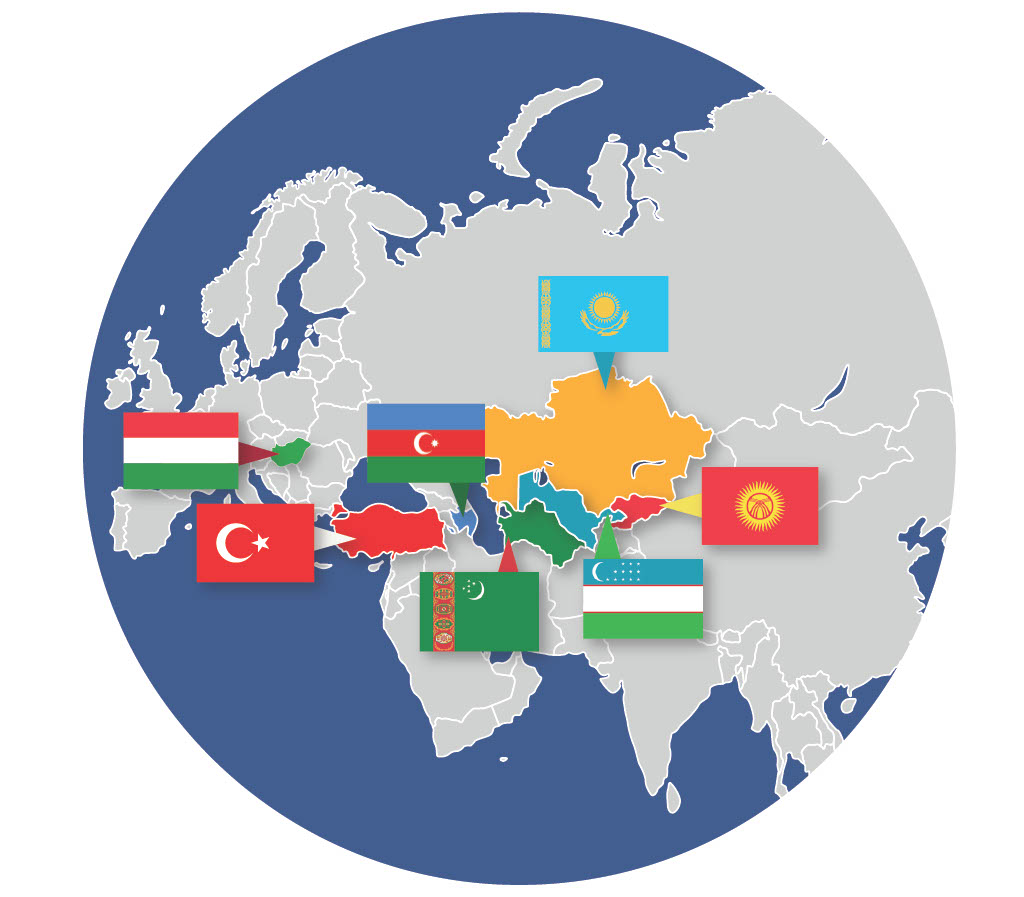
– How is cooperation with the region of the countries of the Organisation of Turkic States progressing?
– We see that cooperation between the Turkic Council and, since last year, between the countries of the Organisation of Turkic States and Hungary is becoming increasingly close. Every meeting, every new strategic document signed or even an informal conversation is another step towards deepening the relationship. The Council plays an increasingly important role in shaping our country's external relations historically, culturally and economically in equal proportion. The Government has recognised that Hungary being located here, right on the border between East and West, is a gift that we must exploit: we must become intermediaries, a transit country. This is in Hungary's strategic interest. In this context, we need to strengthen our Eastern partnerships, or even revive our historical, kinship ties. And we have done just that: we have never had such a good strategic relationship with the Member States of the Turkic Council as we have today.
– Can you give some examples?
– Azerbaijan has become a strategic priority for us on account of its location, and we have developed closer relations and partnerships with the country. We have also deepened our relations with Turkey and Turkish companies. The countries of Central Asia are of interest to us because of their cultural roots and the untapped business opportunities for Hungarian companies. OTP Bank, for example, recently acquired one of the largest Uzbek banks, and has thus started to expand beyond Europe into the Central Asian region. In addition, since the war in the Ukraine, cooperation with Turkic Council countries on energy issues has been growing.

– What role does Hungary play in this cooperation?
– Hungary, as the only EU Member State of the organisation and another NATO member alongside Turkey, can play a primarily bridging role between the region and the Western world. There are still many misunderstandings and prejudices about Central Asia and the Turkic countries, and overcoming these and raising the visibility of Turkic states is one of the most important tasks of the Budapest Representative Office.
Moreover, the war in Ukraine has clearly enhanced the geostrategic role of the Turkic states. The land link between the industrial centres of East Asia and Europe is under threat from sanctions against Russia, and a new transport route is needed. This is what the Middle Corridor – which is also supported by the Turkic states – offers, reaching Europe via Central Asia, Azerbaijan and Turkey.
– Energy supply is a burning issue for Europe. Are there opportunities in this area?
– For Hungary, cooperation with the countries of the Council is also of strategic importance for energy supply. Turkey, for example, is an indispensable partner: Hungary's main natural gas route, the pipeline connecting it to Serbia, is supplied by gas from TurkStream. In addition, Central Asian and Caucasus partners have significant hydrocarbon reserves, and Turkey can provide vital assistance in accessing these. In addition, we will import green electricity from Azerbaijan in a few years – we have already signed an agreement on this matter.
– Does our participation give us an advantage over other European countries?
– Absolutely! Common cultural roots, sympathy for Hungary and the personal connections that are essential in the region all contribute to giving us an advantage in the development of a strategic partnership. And the results are already visible: the perception of Hungary in the Council's member states is clearly positive, and our initiatives and investments are welcomed and supported. Our participation in the Council, as well as in permanent and occasional forums and meetings, play a key role in this.
The author is editor at Eurasia Magazine